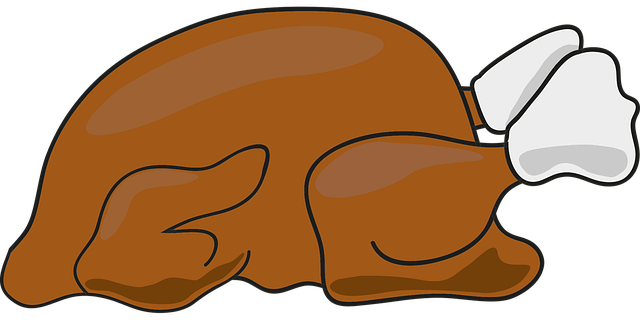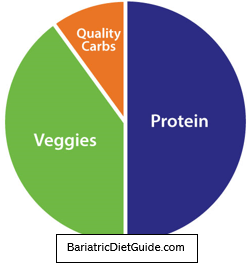High Protein Bariatric Diet:
A Beginners Breakdown
What is a "High Protein Bariatric Diet?"
What is a "High Protein Bariatric Diet?" you might ask. Well, let me tell you, it's not just a fancy term for eating a lot of chicken breast.
A high protein bariatric diet is typically considered to be getting 60-80 grams of protein per day, but as with all things in life, there are exceptions. For example, if you're over 6' you may need as much as 100-120 grams of protein per day.
And don't worry, if you're not sure, just ask your surgeon, they'll tell you exactly how much protein you need to become the next Arnold Schwarzenegger of the bariatric world.
Why Do I Need to a Eat High Protein Diet After Bariatric Surgery?
Consequences of Too Little Protein:
Slow healing
Feel hungry/low energy
Muscle loss
Hair Loss
1. Helps you heal
For starters, it's like giving your stomach a superhero healing potion. Your gut has been through the ringer, cut, stitched, and stapled during surgery, and all that tissue needs to come together like a jigsaw puzzle and heal.
Protein is the glue that holds it all together, carbs are like flimsy tape, fat is like duct tape, and empty calories are like bubble gum (it's fun for a bit but ultimately pointless). So, if you want to heal up like a superhero, chow down on protein.
2. Keeps you full
High protein foods fill you up and keep you full, and they take a longer time to empty out of the stomach than carbs do.This helps control hunger and cravings...which is important for controlling calories...which is ultimately important for controlling weight. Prioritize protein.
3. Prevents muscle loss
If you're not getting enough protein, you might be turning your muscles into spaghetti noodles, which will make you feel tired and weak. And, even worse, muscle loss translates to a slower metabolism, which makes it harder to maintain your lost weight. So, if you want to have the highest metabolism possible at the end of your weight loss period, eat protein, it's like a metabolic booster shot.
4. Prevents hair loss
Let's not forget about one of the most important things...and the one you probably care about most...your hair! If you don't eat enough protein, you can experience excessive hair loss. Some hair loss is expected, especially in the first 3-4 months after surgery, but if you're still losing significant hair past 6 months post-op, you may not be getting enough protein. So, if you want to keep your locks luscious, prioritize protein.
So now that you know the importance of a high protein bariatric diet, you might be wondering "How do I do it?" Well, it's easier than you think....
High Protein Bariatric Diet:
HOW TO
In the immediate post op recovery period, it's physically impossible to get 60-80 grams of protein from real, whole food.
So for the first 2-3 months after surgery you drink A LOT of protein shakes to meet the protein goal: 2-3 protein shakes per day...day after day...until you start adding food.
As you advance through the stages of the bariatric diet, you slowly add mushy, soft, and eventually solid, dense protein foods too. The more high protein whole foods you can eat, the less protein shakes you need to drink.
The ultimate goal is to meet your protein goal with high protein foods and as few shakes as possible...unless you really love the shakes!
High Protein Bariatric Diet:
Can I Eat TOO MUCH Protein?
If 60-80 grams of protein is good...isn't more like, super duper better?
Answer: NO!
Eating more and more and more protein won’t make you lose weight any faster. It's like trying to fit more and more clothes in a suitcase, eventually, it's just gonna burst open.
TOO much protein translates into TOO many calories, which can ultimate slow weight loss, or make you start gaining weight. Also, too much protein is like a workout for your kidneys, it's taxing on them to filter out.
As with anything....Too much of a good thing becomes a bad thing.
High Protein Bariatric Diet:
The Bottom Line for Your Bottom Line
Protein is crucial for:
- Healing
- Controlling hunger and cravings
- Preventing muscle loss and hair loss
- Maintaining weight loss
And it's not as
difficult as you may have thought. Just prioritize protein, whether it's
through protein shakes or high protein foods.
- 60-80 grams protein per day is generally considered a high protein bariatric diet. Follow your surgeon's specific recommendation.



